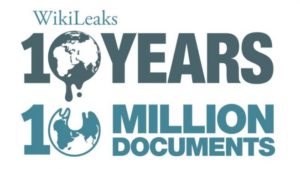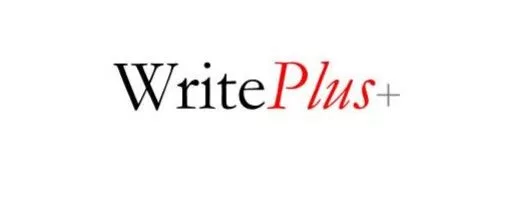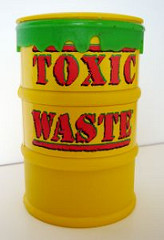**NOW: The 24-hour Customer
The 24-hour customer
by Adrian Ott pub. 2010, 179 pps.
Sneak Peek: For book info, click FB link
What I learned from this book
I learned that all that we, as e-commerce entrepreneurs, have even less time than we originally feared to capture enough attention to get from “browser to customer.” I also learned that very few online marketplaces even have a chance to compete with the “big boys.” We are fighting for the brief attention a very small pool of potential customers who have an endless ability to dump us and head to a close competitor should we not live up to their expectations.
What I liked about this book
I liked the way the author recapped each chapter to provide a brief overview of what we should have gotten out of the previous lesson. This enables the reader to go back and revisit any areas that he/ she might not have fully comprehended and/ or areas requiring a deeper dive for customization purposes.
What I disliked about this book
The only thing I disliked about the book was the tiny graph size and font. Even with my reading glasses, I couldn’t make some of the print out – so I ended up skipping ahead because my magnifying glass was nowhere to be found. In other words, I missed out on some of the areas I wanted to digest further. I just couldn’t see it!
Whom would I recommend to read this book
This book is a great read for anyone of any age who is (or wants) to obtain a customer base. The real lesson is in e-commerce, but I believe it would be equally helpful to those who have face-to-face customer relationships they are trying to build on.
Any thoughts?
The 24-hour Customer by Adrian Ott
For addtional info, visit our FB page http://facebook.com/writeplus1
pub. 2010, ~180 pgs.
Snapshot: A successful Silicon Valley CEO shares strategies to business executives in how to attract and build relationships in this modern age of time-starved and very fickle customers.
WikiLeaks: Inside Julian Assange’s War on Secrecy
WikiLeaks: Inside Julian Assange’s War on Secrecy
by David Leigh & Luke Harding, pub. 2011, 250 pps.
Sneak Peek: For book info, click FB link
What I learned from this book
I learned that a few tidbits that I thought I’d already known previously. First, I forgot how many supporters Assange had in the courtroom in England. My recollection from afar was that the world basically considered him to be an outsider or persona non grata, when, in fact, he became more of a cult-like figure – adorned with big-name stars and even a few groupies in tow. Second, I wasn’t aware of how targeted Hillary Clinton was during the dawn of WikiLeaks. It is almost surreal to read some of the descriptions of how her enemies plotted her demise. It gives a different perspective to the 2016 election and all that has taken place since.
What I liked about this book
I liked the way the authors laid out Mr. Assange’s childhood/ upbringing and showed how his experiences during youth lays an accurate and detailed groundwork for the type of figure he ultimately became. Basically, no matter what side you are on with respect to how and what Julian Julian Assange does (and has done) with WikiLeaks, it is more easily understood the elements of what makes him tick.
What I disliked about this book
There wasn’t much to dislike about the book.
Whom would I recommend to read this book
This book is a great read for all of those who don’t understand the enigmatic Julian Assange. When dealing with a complicated and intelligent human being, it is important to take the time and make the effort to understand his or her perspective prior to making judgment of character and/or actions. Hence, no matter which side of the political “side” our reader is on with respect to Assange and WikiLeaks, this work is inarguably an informative and historically important read.
Any thoughts?
-A.N.

WikiLeaks

The background story of Julian Assange and how he became of the world’s most controversial figures of the past decade…
Playing Hurt
by John Saunders
Quick click: The late ESPN announcer provides in-depth revelation on his lifelong battle with depression.
Playing Hurt – by John Saunders, published 2017, ~295 pages
What I learned from this book
I learned the same message we’ve heard from childhood that still rings true – “You never judge a book by its cover.” Or, “Not all things (or people in this case) are as they appear.” Who would have ever thought that the sportscaster we watched and enjoyed for so long was having such a difficult time even as we watched him?!
John Saunders really drove home the point that we must all take a step backwards to understand the depths of depression and its effects on an individual. It is not our place to judge or attempt to “lighten the person’s load.” This only exacerbates the person’s condition and circumstances. Mr. Saunders explained it as the equivalent of “encouraging someone without use of their legs to get up and run around to improve your outlook on life.” Hopefully, this is something we all should agree on NOT to do.
What I liked about this book
I liked Saunders’ transparency in detailing his entire experience. I thought that the book would not have impacted me as much had he held back in any way. He divulged painful details from dealings with his physically and emotionally abusive father – and an insecure, enabling mother. The dysfunctional family is no stranger to those of us who grew up in the same era (the 1970s).
However, he managed to do his best to survive as long as he could and made a pretty decent situation out of a disastrous start. He put to use the same courage that it takes for all of us to rise above a wall of adversity. It’s just a shame that he still ended up passing away in 2016 – still very productive at the age of 61.
What I disliked about this book
This book contains very little for the reader to dislike. About the only thing I can think of is it was a bit repetitive in the middle section. However, I’ll give Saunders the benefit of the doubt because he was very committed to divulging “the entirety of everything.” We all can get a bit wordy when attempting to drive home a point to our reader, right?
Whom would I recommend to read this book
Of course the main demographic I would recommend to read this book would be those who either are suffering from depression or have loved ones who are. Though disturbing to deal with, I agree wholeheartedly with Saunders in that mental illness is unfortunately considered a “taboo subject matter” in this world that only drives the problem underground and causes more damage than it should in the end.
Any thoughts?
A.N.
**NOW PLAYING: The ‘No Asshole Rule’ – by Robert Sutton
The ‘No Asshole’ Rule – by Richard I. Sutton, publ. 2007, approx. 185 pp.
What I learned from this book
I learned that no matter how talented, experienced or confident an employee or employer is, there is no reason to hire someone who creates a toxic office environment for all of the other team members. This is a tough call because oftentimes the biggest a**hole in the room tends to be the most productive and or aggressive. However, the author does an amazing job in convincing the reader that there is never a “good enough reason” to bring in or retain someone who makes the others insane.
What I liked about this book
I liked the case studies that the author brought into his work. He even used an example from inside of his family when he and his wife came across a dilemma in whether to “unload an a**hole from her law practice. This added a nice personal touch to the book and made it a more enjoyable ride.
What I disliked about this book
The only thing I can think of is that I just took too long to discover it. It has a been a best seller (especially in the business world) ever since its release in 2007. I may have been able to sidestep an a**hole or two had I known about it back then. However, as they say (whomever “they” are) better late than never!
Whom would I recommend to read this book
This is an excellent read for anyone in the business world. I might suggest that those who are leaving college and entering the work world would most benefit by learning how to identify and then steer clear of neighboring a**holes in adjoining cubicles or office suites. However, it is extremely helpful to any and all ages in the professional world.
Any thoughts?
A.N.
https://www.facebook.com/writeplus1/books?lst=100006341289857%3A100006341289857%3A1497133033
Nuclear Showdown – by Gordon Chang (publ. 2006)
Nuclear showdown: North Korea takes on the world – by Gordon G. Chang, approx. 225 pp. (publ. 2006)
FB Follow Write Plus Favorites
“Today he can hit most of the continent of Asia and even parts of the American homeland. In a few years–probably by the end of this decade–the diminutive despot will cast his shadow across the globe: He will be able to land a nuke on any point on the planet.”
Quiz: When do you think the aforementioned was said?
- Last week
- Last month
- Last year
- Several decades ago
The correct answer, believe it or not, is “D.”
It’s mind-boggling to realize that the above statement was not made describing current DPRK leader Kim Jong-Un by the present administration, but rather about his predecessor – and father – Kim Jong-Il, way back in the 1990s. It sheds serious light on how long we have been stuck in this pattern with North Korea and its leadership. No one in any U.S. presidential administration has been able to successfully “move the needle” at all. The reason given has been something to the effect of “…it’s complicated.” And, yes, it certainly is complicated.
What I liked about this book
I liked the way the author laid out the complex history of both North and South Korea and their relation to the situation we still wallow in today. Gordon Chang clearly “did his homework” on this work – presenting all of the events that have led up to today’s standoff.
What I learned from this book
It is jaw-dropping to learn that the U.S. and Korea never formally ended the Korean War in the 1950s. It has been passed around like a hot potato to each subsequent administration to “figure out” – supposedly with cooperation from border countries like China, South Korea and/or others. One thing the “historically-naïve reader” learns is that each country has differing interests in this “game.” Unfortunately, this contributes to providing North Korea with excuses to continue to build and refine its nuclear arsenal; while creating a “ping-pong effect” of international rhetoric to its advantage. As years turn into decades, the only outcome thus far seems to be a higher and higher probability of global nuclear annihilation.
What I disliked about this book
I disliked the fact that our leadership is still discussing the same unsuccessful tactics with the same associated countries without any real resolution. South Korea, Japan, Russia and China have all participated in one way or another. The entire scenario just seems wasteful, useless and irresponsible to the citizens relying on their leadership to safeguard their lives. It gives the world an impression that leadership seems “okay” with everything continuing as is (even though we know they are not, but rather mostly puzzled as much as we are). The optics persist and continue to look really bad.

To whom would I recommend this book
I would definitely recommend this book to anyone who lives – or plans to live – in the following place(s): any location on planet earth!
Your thoughts?
-A.N.
Welcome to the universe: an astrophysical tour – by Neil deGrasse Tyson, Michael A. Strauss and J. Richard Gott,
Welcome to the universe: an astrophysical tour – by Neil deGrasse Tyson, Michael A. Strauss and J. Richard Gott, 425 pages (2016)
FB Follow Write Plus Favorites
What I liked about this book
I liked the way these unbelievably skilled astrophysicists – moonlighting as very talented authors – were able to take the cosmic novice into a (mostly) reader-friendly journey of a world most us only knew tidbits from television shows like Star Trek or the Jetsons. We are able to grasp how the universe began (with a Big Bang – boom!), what has taken place since the Big Bang, and what we can expect to occur between now and…whenever it all ends.
What I learned from this book
I learned that when we become 31 years, 251 days, 13 hours, 34 minutes, and 54.7843 seconds (not adjusted for Leap Years), we have lived on this earth for exactly ONE BILLION SECONDS! Dr. Tyson shares a personal tale from years ago when he stopped what he was doing at this moment and drank a nice, long swig of champagne to celebrate his milestone. His point was that very few of us experience this number in any form – so, it may be worth our while to stop and recognize the “accomplishment.” I really appreciated learning this fact!
What I disliked about this book
There was nothing. It was one of the most comprehensive books I’ve come across in any field of science. All three authors did a tremendous job in relaying a very complex subject matter into something of which most readers should be able to gain a basic understanding (at least, in general).
To whom would I recommend this book
I would recommend this book to anyone who has any curiosity in space (there are many). Judging by the popularity of some of the recent series either broadcast on network television or streaming online like Dr. Neil Tyson’s Cosmos, I would imagine there are new generations of “space geeks” surfacing each and every day. Welcome!
Any thoughts?
-A.N.
American Kingpin – Ross Ulbricht and the Silk Road
American Kingpin – by Nick Bilton, ~325 pages (2016)
https://www.facebook.com/writeplus1/books?lst=100006341289857%3A100006341289857%3A1497133033
What I liked about this book
This story is based on the life of a young man, Ross Ulbricht, who makes use of the “Dark Web” to launch the biggest online provider of illicit drugs to the world. He sets it up as a discreet, “untraceable” site that is accessed through a special browser access – purported to be out of the FBI’s line of sight.
The plot is very descriptive and the author has a unique writing style: he pens short chapters (3-5 pages) in succinct nuggets to keep the story moving along at a fierce pace throughout. This is a smart strategy because it prevents any downtime or boredom in the on the reader’s end.
What I disliked about this book
I couldn’t get over the selfishness of the main character. It’s amazing to think that someone could be so careless with his life – while also being so dismissive of the powers of U.S. federal law enforcement. That said, his chutzpah is amazing in how he puts his blinders on and sticks to his mission. He does this despite risking the stiffest consequences possible – the remainder of his very young life spent rotting in a prison cell. Unbelievable.
To whom would I recommend this book
Limit to adults over the age of 18. This book is filled with drug references (since that is the point of the book), and contains other adult content that makes it unsuitable for minors. Otherwise, it is a very interesting, pertinent and unique story. It’s easy to feel like the reader wants to “pinch oneself” with respect to believing someone actually thought they could live this story and actually emerge on the other end a free person. I guess we really do learn something new every day.
Any thoughts?
-A.N.


